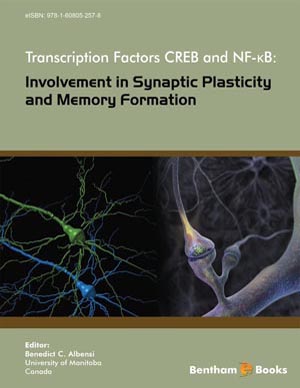Abstract
An increasing number of reports have called attention on the role of the NF-κB family members in processes that require long-term regulation of the synaptic function and underlying memory and neural plasticity. In general, NF-κB proteins appear to participate in spatial and contextual memory tasks that depend on the hippocampal function, whereas nonspatial or cued tasks that are not dependent on hippocampus usually show little impairment in NF-κB deficient animals.
The molecular mechanisms and target genes through which the complex NF-κB pathway mediates transcriptional regulation to participate in memory and learning are far less characterized. Recently, a potential involvement of NF-κB proteins in adult neurogenesis, the formation of new neurons in adulthood, has been suggested. While its exact function remains elusive, adult hippocampal neurogenesis has been proposed to play important roles in specific cognitive functions and to contribute to their maintenance. In particular it appears that neurogenesis may be relevant for some hippocampal-dependent memory tasks. Whether the two phenomena, NF-κB-mediated regulation of cognitive function and modulation of adult neurogenesis are functionally linked remains to be unambiguously confirmed. Nevertheless these findings are herein reviewed and discussed for their impact in several neuropsychiatric disorders and their therapeutic implications.
Keywords: NF-κB, neurogenesis, hippocampus, neural stem cells, neural progenitor cells, subgranular zone, learning, memory, neuroplasticity, neurodegeneration, neuropsychiatric disorders.








